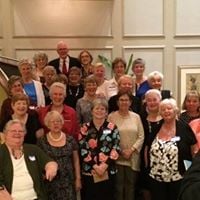Who wrote the following? “What though the radiance which was once so bright, be now for ever taken from my sight, though nothing can bring back the hour of splendour in the grass, of glory in the flower;"
The passage is from "Ode to Intimations of Immortality" by William Wordsworth (born 7 April 1770 and died 23 April 1850). The complete name is "Ode: Intimations of Immortality from Recollections of Early Childhood" (also known as Ode, Immortality Ode or Great Ode) It was completed in 1804 and published in "Poems, in Two Volumes" (1807).
Wordsworth has the narrator reflect on scenes in nature, the classic romanticism touch, birds singing in nature, the moon and the sky, a young child, a lamb, and celestial lights, meanwhile finding his thoughts at odds with these scenes. Rather than the traditional values of liberty, truth and freedom the romantic usually finds in nature, Wordsworth instead, through deep philosophical thought and solitude, finds loss in nature. The loss of innocence, and the desire to return to a childhood like state.
This poem is often offered as simple life advice. Our moments in the sun, are just what they are - "moments". Rather than spending our entire lives trying to recreate "moments" and relive certain “hours”, nothing can bring back the "hour of splendour in the grass, of glory in the flower.” Wordsworth meant this to relate to our childhood, whether it be childhood loves, innocence or the purity of naivety. The beauty lies, not in these moments, but the strength we have to keep these times within us, not grieve their loss, but allow their memory to provide us the strength to move along in our lives peacefully and faithfully.
More Info:
en.wikipedia.org






